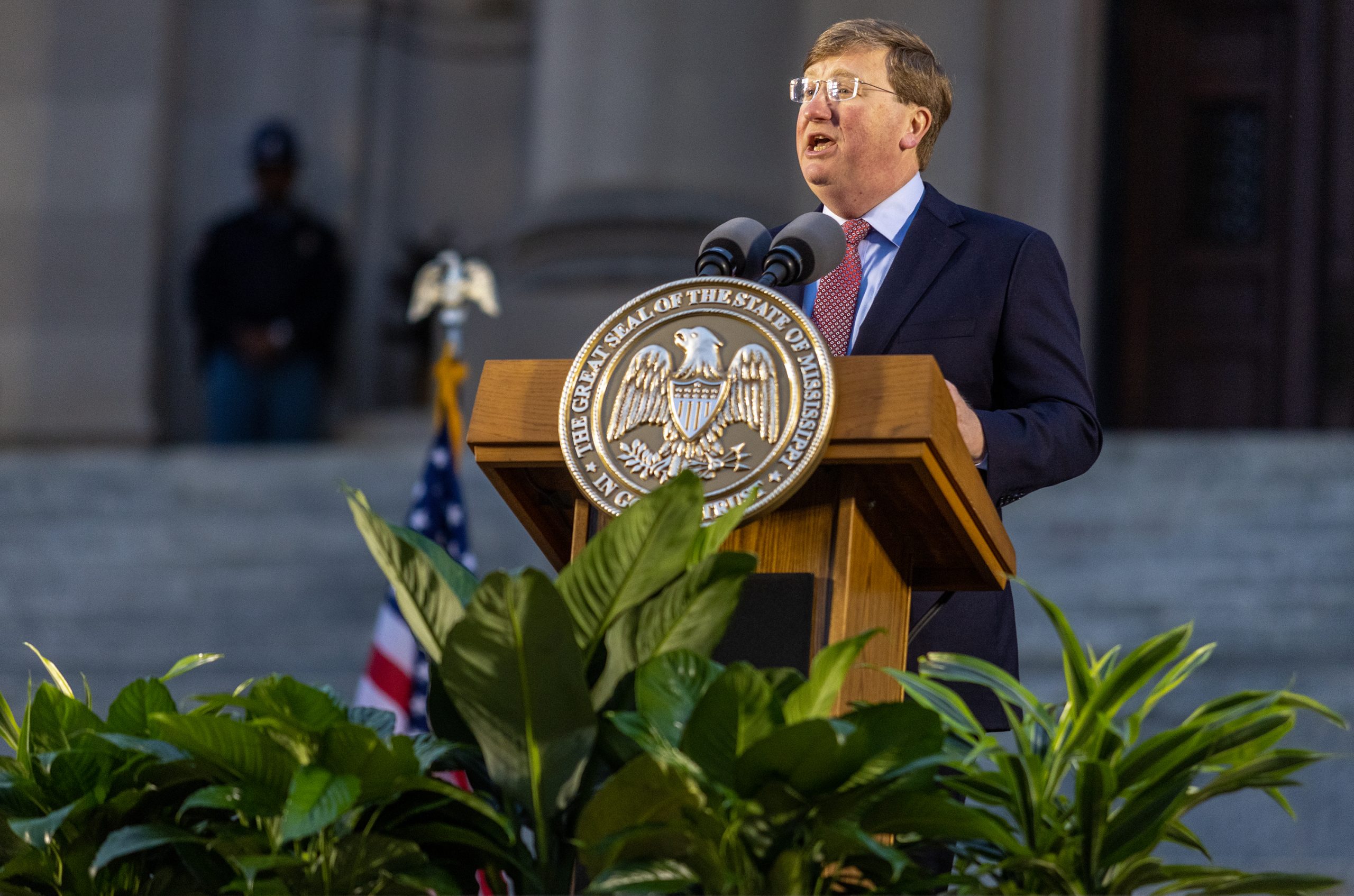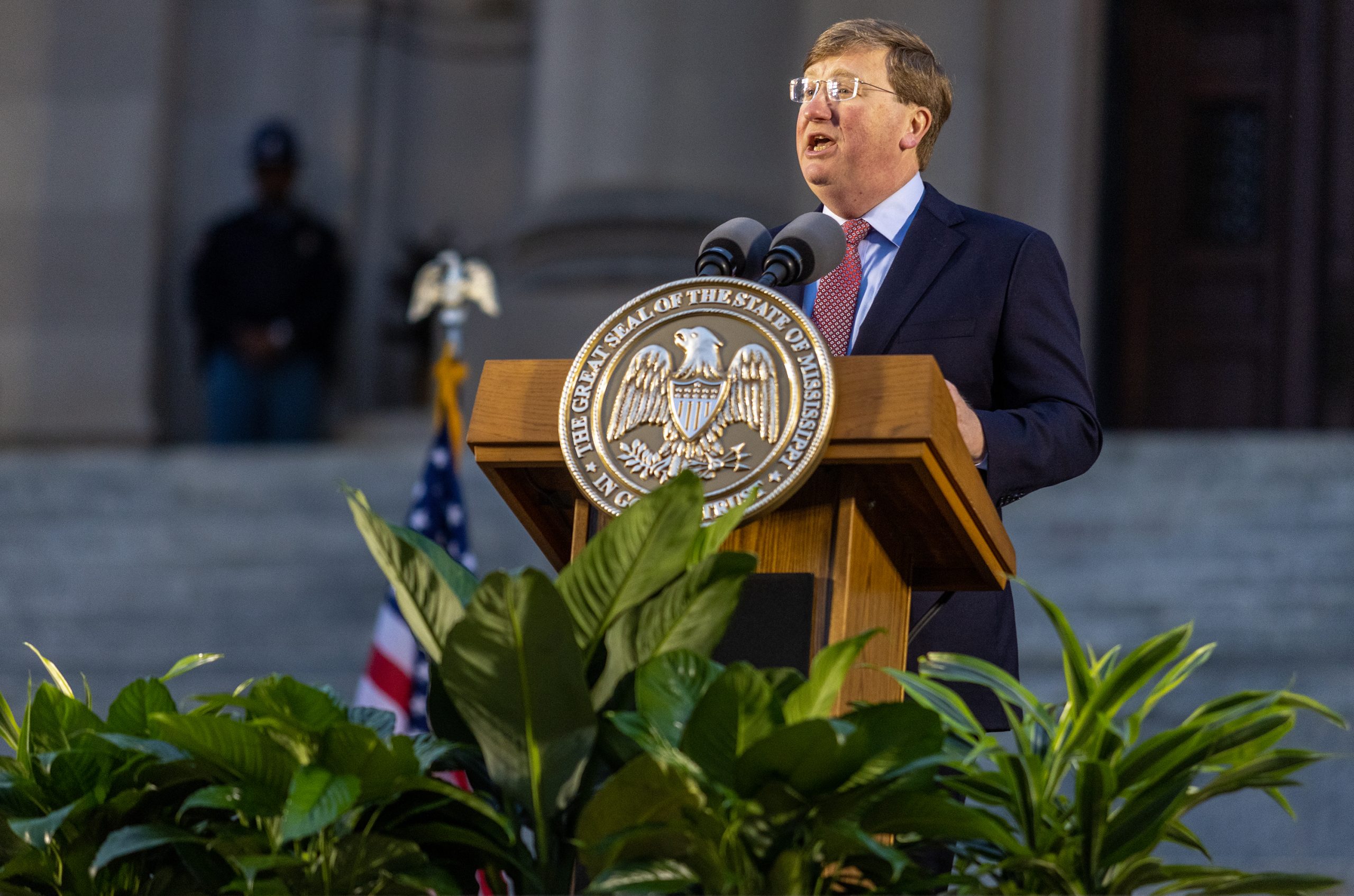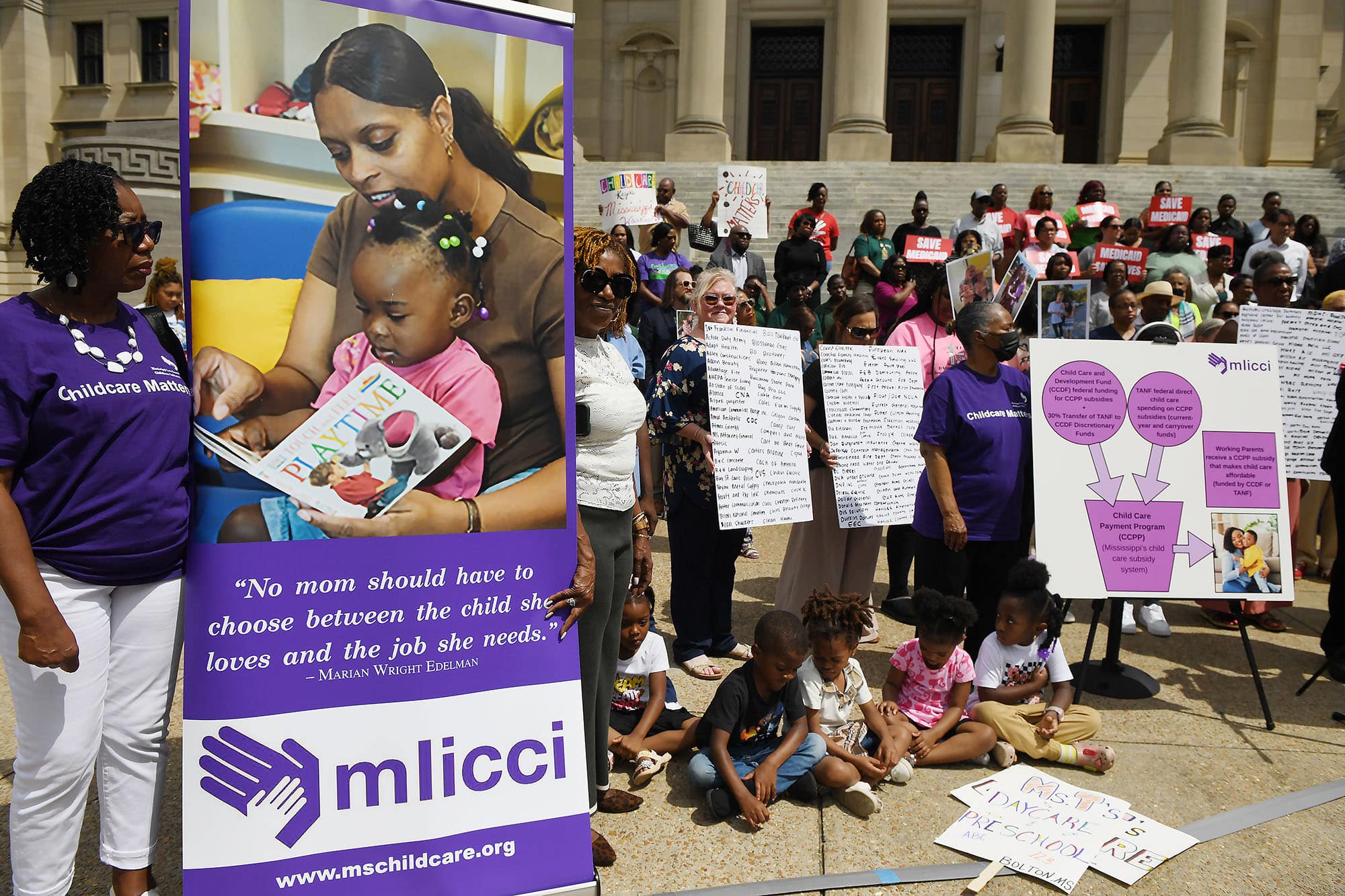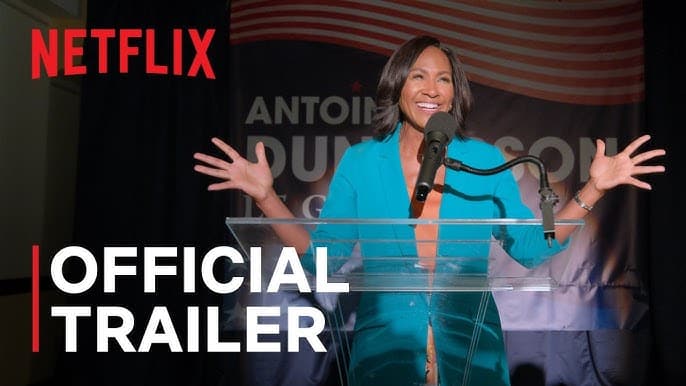Mississippi Today
Transcript: Gov. Tate Reeves delivers 2023 State of the State address


Transcript: Gov. Tate Reeves delivers 2023 State of the State address
Gov. Tate Reeves, a first-term Republican, delivered his annual State of the State address on Jan. 30, 2023.
Below is the transcript of Reeves’ speech, which aired live on Mississippi Public Broadcasting.
Editor’s note: This transcript was submitted by Reeves’ staff and has not been formatted to match Mississippi Today’s style.
WATCH: Gov. Tate Reeves’ full State of the State address.
Thank you, Lieutenant Governor Hosemann and Speaker Gunn.
To the members of the legislature and other elected officials here tonight, thank you. Thank you for your continued partnership and thank you for the tireless work you do on behalf of our great state and her people.
I also have to take a moment to thank my beautiful wife and Mississippi’s outstanding First Lady, Elee. She’s an incredible wife, an awesome mom, and a wonderful representative for our state. I’m amazed daily by your grace and your kindness, and I’m so thankful to have you in my life every single day.
Finally and most importantly, I have to thank the three million Mississippians who have helped our state usher in an unprecedented period of economic growth, educational achievement, and freedom.
2022 was perhaps the best year in Mississippi’s history. Because, here in Mississippi and unlike in Washington, D.C., we still have the incredible capacity to work together and accomplish great things for our constituents.
The sense that our state is one big, small town binds us and it furthers a sense of optimism that we can still work together here and deliver results on behalf of our people.
The people of Mississippi are our state’s strength. It is because of your hard work that our state is primed and ready to face the challenges of tomorrow.
It is because of your work ethic and your commitment to excellence that more and more companies are choosing to do business in Mississippi and that our state’s brightest days lie in front of us.
It has been the privilege of a lifetime to serve as your governor over the last three years. I haven’t taken it for granted for one second, and I promise you that I never will. It is truly an honor to wake up each and every day and get to work on your behalf, and I look forward to making even bigger things happen in this great state.
Now, over these years some days have been more challenging than others. But no matter what’s thrown at Mississippi, I thank God each night that I have the chance to live, work, and serve alongside of you. There is no place I would have rather weathered tornadoes, floods, hurricanes, or a global pandemic than right here in Mississippi.
But Mississippi – and I think you’ll agree too – means more than simply a place to batten down the hatches during natural disasters.
Mississippi is all of our home. Our state is filled with natural beauty and friendly people. I, like so many of y’all today, am grateful to be raised in this loving community.
I’m proud to be a Mississippian, and I’m proud of the life lessons I’ve learned from the people I’ve met along the way.
One of those people, is my hero – my dad. Now, I don’t remember the first time I met him because I was only a few minutes old. But I do remember some of the lessons he taught me, especially when it comes to the value of hard work.
My father grew up in a two-room home with five brothers and five sisters in Bogue Chitto. He started a small business in the early 70’s and spent many, many nights sweeping the dirt floors and praying for his next clients.
Like entrepreneurs across Mississippi, he spent his life growing that business. Only in America could the son of that man stand here today as the governor of this great state. It is the American Dream, and the lessons I learned from him have inspired everything that I’ve done.
I’ve tried my best to take those lessons with me over the years and incorporate them into everything that I do. I’ve leaned on them when times were good, and I’ve leaned on them when times were bad.
They’ve helped to keep me grounded and to remember what’s really important in life. They’ve helped me govern, and they’ve helped me keep perspective.
Today, it’s a cold-hard-fact that really, really good things are happening in Mississippi. And it’s my honor to stand before you today and announce that the state of our state is stronger than ever.
Our state is strong because our people and my administration are laser focused on the issues that matter to Mississippians.
As you’ve heard me say before, the way we measure success is in the wages of our workers, the success of our students, and winning the war on our values.
Mississippi is hitting the target on all three of these fronts.
First, wages. Since 2019, we’ve raised per capita personal income in Mississippi by approximately $7,000 or almost 18%. We are boosting the money that Mississippi families are bringing home – especially right now, as we combat rising inflation from wasteful spending in Washington, D.C.
This wasn’t by accident. We were able to accomplish this momentous feat because we never wavered from the tried and true economic and fiscally conservative principles that have set up states for growth for generations. And we were able to accomplish this despite the left’s best attempts to grow government.
Our conservative reforms and sound budget management have laid the foundation for this economic boom. It’s the policies of yesterday that have paved the pathway to today’s prosperity.
It’s led us to a $4 billion budget surplus. $4 billion!
It’s led to investing a historic amount in jobs training, and because of that we have the lowest unemployment rate in our state’s history.
It resulted in a record $6 billion in new capital investment in 2022, which is more than seven times the previous average of approximately $900 million a year before I became governor.
And it helped us finalize the largest economic development project in Mississippi history – a $2.5 billion capital investment that will create 1,000 new jobs with an average salary of almost $100,000 a year.
But we had more than just one major economic deal. That grand slam was great, but there were dozens and dozens of projects impacting every corner of our state over the last year. The fact is that thanks to our singles and our doubles, Mississippi is starting to run up the scoreboard.
Last year we announced a $2 million investment that will create 117 new upholstery jobs in New Albany.
We announced a $79 million investment that will create 21 new operations jobs in Pelahatchie.
We announced a $51 million investment that will create 41 new manufacturing jobs in Winona.
Canton, Philadelphia, Bay Springs, Columbus, Starkville, Southaven, Meridian, Calhoun, Waynesboro, Vicksburg, Olive Branch, and Corinth – just to name a few of the places that we announced investments this last year.
My friends, when it comes to setting up our people and state for more economic prosperity, we are, by every objective standard, getting the job done.
We are boosting salaries and we are expanding the tax base. And we are investing in the areas that will provide our state with the highest return – our people.
I want our state to go even further in supporting Mississippians. Our state is in the best fiscal shape we’ve ever been in, and our state is in the best financial shape in history and our residents deserve to get a bigger piece of the pie.
We can and should do more to put additional dollars into the pockets of Mississippians. We will do this, by eliminating our state’s income tax once and for all.
We can do this and we can do this without raising other taxes. You’ve heard me say this before, but I’m going to keep saying it because it’s that important: government doesn’t have anything that it doesn’t first take from somebody else.
I believe that Mississippians not politicians or the government know best how to spend their dollars. I also believe that those who have competitive advantages win.
We have a competitive advantage in our people. We need to add another competitive advantage with our tax code.
To build the best possible environment for entrepreneurs, to combat President Biden’s runaway inflation, to compete with the likes of Florida, Tennessee and Texas, to continue making it easier for Mississippians to support their families, we must eliminate Mississippi’s income tax.
That’s why last year I was so proud to sign into law the largest tax cut in Mississippi history, which returned over half a billion dollars to Mississippians.
That’s more dollars in your pocket, more dollars in your kids’ college funds, more dollars put toward buying a home or retirement, and more dollars for you to spend on your priorities. Not politicians’ pet projects.
I’m proud of what we accomplished. But I’m even more fired up to keep the tax cuts coming. You have my word that as long as I’m governor, I’m going to continue relentlessly fighting for permanent, long-term tax relief that lets you keep more of your own hard-earned money.
But Mississippi isn’t just witnessing historic achievements in our state’s economy. We’re also seeing it in classrooms across our state.
A little over a week ago we announced – for the third time since I’ve been governor – that Mississippi’s high school graduation rate hit an all-time high and continues to be better than the national average.
And like our state’s economic growth, our education improvements didn’t happen by accident.
Our state’s stellar report card didn’t just appear out of thin air.
Mississippi insisted on getting kids back into school when other blue states stayed closed, and now we have the best education numbers in our state’s history!
The year Philip Gunn and I first presided over a State of the State in 2012, Mississippi was dead last in fourth grade math. Now, we’re above the national average at Number 23.
That means that over the last ten years since we passed education reform, Mississippi surpassed half the states in the nation.
We’ve gone from needs improvement to most improved.
We’ve led the nation in fourth grade reading and fourth grade math gains.
And students from all walks of life are finding more success in Mississippi. In 2003, Mississippi was among the worst performers when it came to test scores for Black students. Today we’re fifth in the entire nation when it comes to fourth grade reading test scores for Black students. Fifth in the entire nation!
So, when some people say, “Mississippi is last in education,” folks, they’re just not telling you the truth.
I want to personally thank all the legislators that played a role in helping to pass those education reforms. I also want to thank all the involved parents and dedicated teachers across Mississippi. We couldn’t have accomplished these goals without you.
Our state – unlike some others that have been in the news – recognizes that we have a duty to both. We should ensure that parents continue to play an active role in their kids’ education, and we should ensure that teachers are paid what they deserve.
It is my firm belief that Mississippi has some of the best teachers in the nation, and their salaries should reflect that.
That’s why I was proud to sign legislation giving Mississippi teachers the largest pay raise in state history. We elevated teacher salaries above not only the Southeastern average, but even above the national average!
Mississippi’s teachers earned those raises, and I was proud to sign them into law.
But regardless of the technology or textbooks we put in front of our kids, nothing is more influential to a child’s educational development than parents.
And when it comes to education, Mississippi should protect parents’ voices and their right to be involved in the classroom. Because at the end of the day, the state doesn’t run a child’s life – parents do. We need more transparency in schools in this country. We need more choice. We need more freedom. That will be the best way to protect our children.
I’ve been shocked to see how some states have embraced the misguided practice of pushing parents out of the classroom, pushing parents out of their children’s lives, and pushing parents out of the school board decision-making process.
Nobody, and I mean nobody, is more invested in the life and the future of a child than a parent. They shouldn’t be labeled as domestic terrorists for simply asking questions or for attending a school board meeting. They should be celebrated for being invested in their child’s education.
As a father myself, I want schools across Mississippi to complement the lessons parents are trying to teach at home, not reject them. That’s exactly why I am calling on the legislature to pass a Parents’ Bill of Rights this session.
Through the Parents’ Bill of Rights, we will reaffirm that in Mississippi, it is the state who answers to parents and not vice versa.
This Parents’ Bill of Rights would further cement that when it comes to the usage of names, pronouns, or health matters, schools will adhere to the will of parents. There is no room in our schools for policies that attempt to undercut parents and require the usage of pronouns or names that fail to correspond with reality.
I am proud to be governor, but the greatest pride in my life is being the dad of three wonderful girls. There are few things I love more than having the chance to cheer them on from the sidelines at their soccer or basketball games.
That’s why I’m especially proud to have signed legislation that ensured, that in Mississippi, we’re going to let boys play boys sports, and girls play girls sports. I didn’t do this just for my daughters, I did this for all of Mississippi’s daughters.
But we need to do even more to protect Mississippi’s children. We have a duty to keep pushing back against those that are taking advantage of children and using them to advance their sick and twisted ideologies.
There was a time in America when saying to kids ‘you can be whatever you want when you grow up’ meant that one day they could become a teacher, police officer, or fire fighter. A professional athlete, a doctor, or even a lawyer. That if you push yourself, there is nothing you can’t accomplish.
But today, there is a dangerous and radical movement that is now being pushed upon America’s kids. It threatens the very nature of truth. Across the country, activists are advancing untested experiments and persuading kids that they can live as a girl if they’re a boy, and that they can live as a boy if they’re a girl. And they’re telling them to pursue expensive, radical medical procedures to advance that lie.
These radical liberals are attempting to undermine objective, scientific truths. They’re trying to undermine how we view gender and even manipulate English words and grammar rules. From their illogical pronouns to their attempts at pushing the word Latinx onto the Hispanic community – they don’t care about the destruction they’re causing or whether they have the support of those they’re trying to group or label. Rather, they’re tyrannical in their approach to these issues and their unceasing attempts to have them adopted by society.
And let’s be honest, America stands essentially alone in the truly outrageous position that we’ve staked out on this issue. While some in our country push surgical mutilation onto 11 year olds even here in Mississippi, even liberal darlings like Finland, Denmark, and Sweden don’t allow these surgeries to be performed on kids who are under 18.
The fact is that we set age restrictions on driving a car and on getting a tattoo. We don’t let 11 year olds enter an R-rated movie alone, yet some would have us believe that we should push permanent body-altering surgeries on them at such a young age.
Mississippi must continue to do everything in our power to counter those who want to push their experiments on our kids. Time is of the essence, and we don’t have a second to waste. We must take every step to preserve the innocence of our children, especially against the cruel forces of modern progressivism which seek to use them as guinea pigs in their sick social experiments.
Let me be clear to those radical activists around the nation who want to do our kids harm.
Mississippi will not be trading compassion for compliance.
Our voices will not be silenced when it comes to science.
We will not be pressured into not asking questions.
And we will not give in to liberal intimidation when it comes to protecting our kids.
This is my promise to every Mississippian across our state.
There is also another way we are going to keep our kids safe, and it includes keeping their parents safe as well.
One of the most fundamental responsibilities of government is to ensure public safety and to uphold law and order.
I ran for governor to fix Mississippi’s problems, not to hide them. That’s why I’ve become increasingly concerned that, for three consecutive years now, homicides have numbered in the triple digits here in our capital city. We can and must do better.
The fact is, no matter how hard we try, there will always be evil in the world. There are those who lurk in the shadows seeking to hurt those around them. There are those who seek to inject drugs and crime into their communities, all so they can make a buck.
These actions undermine social cohesion and safety in our neighborhoods. They threaten the lives of our kids and the safety of our families.
To put it mildly, the crime situation in Jackson is unacceptable. Kids are getting killed in our streets and it’s time we put a stop to it.
Now, some have suggested that the response should be to undercut, defund, and dismantle the police. I couldn’t disagree more.
Many of us have family and friends who wear the badge. It’s worth constantly reminding ourselves that these individuals are the thin blue line which helps hold communities together.
In Mississippi we choose to fund the police. We choose to back the blue. We choose to celebrate the brave men and women who put on the badge every day and run towards danger. That’s exactly what Mississippi has done, and that’s exactly what Mississippi will continue to do.
Last year, the Mississippi Department of Public Safety conducted two major surges of law enforcement personnel – one in Jackson and one along our Gulf Coast. We flexed law enforcement in the areas and helped to shut down criminal elements in the regions. And while those surges proved to be successful, we still have more work to do.
That’s why this session, I’m calling on the legislature to make further investment into our Capitol Police by giving them the 150 officers and equipment they need to continue fulfilling their mission and continue pushing back on lawlessness in Jackson.
And let me say this as well, my administration will go after all crime within our jurisdiction. Regardless of the crime committed, regardless of who did it, regardless if it happened on the street or in an office building, my administration is and will continue to hold criminals accountable.
That’s why my administration remains committed to delivering justice and recouping every dollar possible from those who stole from Mississippians through the theft of TANF dollars.
Again, I ran for governor to fix Mississippi’s problems, not to hide them. Which brings me to my next area of focus – our state’s healthcare system.
Mississippi is not immune to the struggles facing healthcare systems across the country. Together, we should keep working to improve Mississippians’ access to quality healthcare, and together, we should keep working to ensure Mississippi’s healthcare system meets the needs of our people.
It starts with leveling the playing field. Most people do not know that it is illegal to open a new health care facility that competes with other institutions. We are all frustrated and worried by the threats that some hospitals may close. The first step should be allowing new ones to open! By reforming Mississippi’s Certificate of Need laws, we can root out anti-competitive behavior that blocks the formation of medical facilities and prevents the delivery of lifesaving healthcare to Mississippians.
We should continue to strengthen the pipeline of medical professionals by doubling and tripling down on our improved workforce development strategy, and we should pass legislation that levels the playing field for hospitals with expanded residency programs.
Because, at the end of the day, the real answers to our problems are not contained in the same old proposals that only serve to delay the inevitable at the expense of taxpayers. The real answer to our problems lies in innovation.
Technology is changing, and the way healthcare is delivered is changing. Our policies must adapt with the times and facilitate care that focuses not on institutions but on the patients we seek to support.
Throughout modern history we’ve witnessed innovation disrupt industries such as manufacturing, transportation, food, and entertainment. There was a time when people had to go to the theater to watch a movie. Today, they can watch them at home and on an airplane. On cable TV, Netflix, and every streaming service in between.
The fact of the matter is that technology and innovation lead to new opportunities. The same can be said of our healthcare system.
There was a time when if you needed medical services, you had to go to a large brick and mortar hospital – that was your only choice. But today, people are increasingly choosing new healthcare distribution channels over your traditional hospital. Today, people are accessing healthcare through telemedicine providers, micro-hospitals, urgent care facilities, and expanded care opportunities with nurse practitioners, pharmacists, and others.
This legislative session, I urge the legislature to think outside the box when it comes to improving Mississippi’s healthcare system. Don’t simply cave under the pressure of Democrats and their allies in the media who are pushing for the expansion of Obamacare, welfare, and socialized medicine.
Instead, seek innovative free market solutions that disrupt traditional healthcare delivery models, increase competition, and lead to better health outcomes for Mississippians.
Do not settle for something that won’t solve the problem because it could potentially and only temporarily remove the liberal media’s target on your back.
You have my word that if you stand up to the left’s push for endless government-run healthcare, I will stand with you.
For as dire as national politics sometimes seem, there’s still a tremendous amount of hope in Mississippi.
There really are incredible things happening here. And I’m talking about far more than our state winning its second college baseball national championship in a row, as incredible as that was.
Last year, Mississippi led the nation to overturn Roe v. Wade – the greatest accomplishment in the conservative movement in my lifetime.
Long story short, more innocent children will now have the chance to be born.
There are future doctors who now have the chance to be born. There are future teachers that now have the chance to be born. There are future nurses, future linemen, and future truckers. There are future fathers and future mothers, friends and family, brothers and sisters. They all now have the chance at life.
And there may very well even be a life that was saved who, a few years from now, will stand up here and give his or her update on the State of our State. What a wonderful blessing that would be.
But the fact is that being pro-life is about more than just being anti-abortion. We don’t just want to eliminate the taking of unborn children’s lives, we want to make it easier for parents to raise children and for mothers to give birth to happy and healthy kids.
Now some have said that too many children will be added to Mississippi’s population. I say what a wonderful problem to have. On this point I agree with Mother Teresa when she said, ‘How can there be too many children? That is like saying there are too many flowers.’
But I also recognize we are called to do more and to support these new moms and new babies.
And I want every element of our laws to reflect and facilitate this critical mission.
That’s why I’m also calling on the legislature to establish a New Pro-Life Agenda that helps make Mississippi the easiest place in the nation to raise a family.
Together, we can prove the country wrong just like we did in education. Just like we led the nation in overturning Roe, we can lead the nation in supporting mothers and babies.
This session, Mississippi should establish a childcare tax credit and allow Mississippi families to write off childcare supplies on state tax returns.
We should increase our support for pregnancy resource centers and thus help to care for expectant and new mothers, especially those who are struggling with poverty or isolation.
We should expand childcare opportunities by cutting red tape. There’s no reason that we should let government get in the way of parents accessing care for their children.
We should expand safe haven laws, so parents have every available opportunity to choose life.
We should reduce the existing adoption backlogs and make it easier and less expensive for parents to adopt kids into a loving forever home.
And we should update our child support laws so that fathers must support their children from the moment their life begins – at conception.
This is our New Pro-Life Agenda. As I’ve said before, it will not be easy, and it will not be free. But I know that together, we are going to get the job done and deliver the support Mississippi mothers and babies deserve.
My fellow Mississippians, it’s been quite the year for our state. We’ve had moments of triumph and moments of anguish. But through it all, we’ve emerged stronger, together.
We know where Mississippi has been, and we know where Mississippi is going. Regardless of the unfair stereotypes placed upon our state and her people, we know good things are happening here.
Is our state perfect? Of course not. But besides heaven, no place is.
We know what’s happening on the ground here. We know it because we are seeing it. Whether it’s the record investment or all-time low unemployment, the all-time high graduation rate or standing up to the radical left’s war on our values – Mississippi is winning, and our state is on the rise.
That’s why I urge all of you here today to stand with me and call out the lies when they are thrown at all of us.
We can never give into the cynics who seek to tear down our great state.
We can never give into Joe Biden and the national Democrats who seek to force feed us an unhealthy dose of progressivism because they view Mississippians as neanderthals.
And we can never give into those who want us to live in a perpetual state of self-condemnation.
My friends, I am proud to serve as Mississippi’s 65th governor but I’m even prouder to call myself a Mississippian.
The eyes of our state are turned to the future, and that’s why I will continue to reject those who would seek to divide and separate us. Instead, on behalf of all Mississippi, I am proud to pronounce once more that we are all Mississippians, committed to improving this home that we love.
We are blessed to live in a wonderful state. We are blessed to have wonderful neighbors. We are blessed by one common God who smiles down upon Mississippi.
I have no doubt that our future is brighter than ever before and that, together, we will continue to build this great state upwards.
God bless all of you. And may God continue to bless this great state that we all love, Mississippi.
This article first appeared on Mississippi Today and is republished here under a Creative Commons license.
Mississippi Today
Gov. vetoes bill providing hospitals ‘stability’

Gov. Tate Reeves vetoed a bill Thursday that would help stabilize hospitals, calling it the “Grady Twin” of a bill he vetoed in March.
Lawmakers made some changes to the previously vetoed legislation in a new bill, but kept much the same. Reeves cited many of his same concerns this time around, including alleged contradictions and the loom of a deficit.
The bill, authored by Senate Medicaid Chairman Kevin Blackwell, R-Southaven, sought to make several changes to the Medicaid program – from mandating providers screen mothers for postpartum depression to requiring the agency to cover a new sleep apnea device.
Blackwell did not respond to a request for comment by the time of publication.
Arguably the largest impact of Senate Bill 2386 would have been that it called for locking in place supplemental payment programs that have been a lifeline for hospitals – but which are unreliable as they vary from year to year, according to Richard Roberson, CEO of the Mississippi Hospital Association.
That fluctuation makes it difficult for hospitals to plan what services they can offer.
“The supplemental payment language was intended to offer better budget predictability as hospitals move through these uncertain times and instructed the Division (of Medicaid) to maximize federal funding,” Roberson said. “… Hospitals, like other businesses, need stability to continue to serve their communities effectively.”
Supplemental payment programs bring in around $1.5 billion federal dollars to Mississippi hospitals each year.
Reeves said in his veto statements for both bills that locking the payment program in place is in contradiction with another of the bill’s mandates, which would change the program to allow out-of-state hospitals that border Mississippi to participate in the program.
“It is logically nonsensical for Senate Bill 2386 to, on the one hand, freeze the MHAP, while on the other hand, mandate that the Division open the program to include an additional hospital.”
But Roberson said the language of the bill would not prohibit the programs from growing – it would merely clarify what hospitals need to do to get paid.
Reeves again said the bill “seeks to expand Medicaid.” The bill brings forth code sections related to eligibility requirements, but it doesn’t call for expanding the Medicaid population by increasing the income threshold, which is what is typically referred to as Medicaid expansion under the Affordable Care Act.
Thursday’s vetoed bill was hospitals’ last recourse for stabilizing their budgets via legislation.
Richardson says the Mississippi Hospital Association has now turned its sights toward the Division of Medicaid to secure hospitals’ payment programs without the help of the Legislature.
“With or without Senate Bill 2386, we are hopeful the Division will work to stabilize the model,” Roberson said.
This article first appeared on Mississippi Today and is republished here under a Creative Commons Attribution-NoDerivatives 4.0 International License.
Mississippi Today
Parents, providers urge use of unspent TANF for child care

Child care providers, parents, children, legislators and advocates gathered outside the state Capitol Thursday to call on Mississippi to use unspent welfare funds and resume accepting child care certificate applications.
Last month, the Mississippi Department of Human Services announced it will temporarily stop accepting new applications, redetermination applications and “add a child” applications for the child care certificate program for certain families as the result of the loss of COVID-19 relief funds. The hold, started March 31, will continue indefinitely. The program provides child care vouchers to eligible families, often with a co-payment fee.
MDHS explained that without the COVID-19 relief funding the number of families with child care certificates is more than it can support long term. When asked how long the hold would last, chief communications director Mark Jones explained the hold would end when the number of children with certificates dropped below 27,000 children and $12 million in monthly costs.
The week before the hold began, on March 28, 36,186 children had child care certificates. 25,300 of them fit into one of the MDHS’s priority categories. 10,800 did not.
The Mississippi Low-Income Child Care Initiative, Child Care Directors Network Alliance, Mississippi Delta Licensed Child Care Providers, and Mississippi Black Women’s Roundtable organized Thursday’s gathering and press conference to implore MDHS to tap into unused TANF funds to book the child care payment program.
“DHS has about $156 million in money from prior grant years that has gone unspent,” said Carol Burnett, MLICCI’s executive director, at the press conference.
The child care payment program gets funding from federal and state sources. It received $127 million from the Child Care Development Fund in fiscal year 2024, as well as $7 million in state appropriations, and $25.9 million transferred from the Temporary Assistance for Needy Families grant.
That $25.9 million is 30% of the state’s annual TANF grant money transferred into funds for child care certificates. It is the maximum amount they’re allowed to transfer under federal law. The state also spends 85% of its money from the child care development fund on certificates, when federal law requires them to use at least 70%.
MLICCI and others want MDHS to add to that by spending current and carryover TANF funds on child care subsidies for families that qualify for child care certificates. According to a memo MLICCI prepared, this method does not require legislative action, has no spending limit, and is already used by other states.
Under the current hold, families can apply and get their certificates renewed if they fall in one of the following six categories: on Temporary Assistance for Needy FamiliesTANF or transitioning off of TANF, homeless, with foster children, teen parents, deployed military, orand with special needs. The Division of Early Childhood Care & Development will continue paying for certificates for all families until their certificates expire.
In a statement, MDHS’ chief communications officer Mark Jones said “MDHS understands these concerns and reaffirms its commitment to support child care, transportation, education, and other needs of families who need to return or remain in the workforce. Our aim is to ensure our approaches are sustainable.”
Burnett, parent KyAsia Johnson, state Rep. Zakiya Summers, D-Jackson, and multiple child care providers talked about the toll the hold has taken on child care centers and families. They also stated the importance of child care to sustain the state’s workforce, keep child care providers afloat, and educate young children.
They also urged citizens to contact the state’s political leadership to get their attention.
“This decision is putting people like me in an impossible situation,” said Johnson, a child care provider and parent. “What am I supposed to do without child care?”
Each provider spoke about how they had to explain the hold to parents, many of whom have had to pull their children out of day care. Cantrell Keyes, director of Agape Christian Academy World in Jackson, had five families pull their children out of her center. “More than half of my school tuition comes from CCPP,” she said.

Rep. Summers called on MDHS to lift the hold on child care applications, use the extra TANF funds, and communicate better with parents and providers.
“Right now, thousands of Mississippi children might lose child care, not because the need has disappeared, but because the agency has made a choice,” she said.
The hold on child care certificates comes at a time when many child care providers and parents are struggling to stay afloat amid high costs, high turnover and high demand.
Deloris Suel, who owns Prep Company Tutorial Schools in Jackson, said, “Child care is in crisis. We’re not heading for crisis, we’re in crisis.”
This article first appeared on Mississippi Today and is republished here under a Creative Commons Attribution-NoDerivatives 4.0 International License.![]()
Mississippi Today
Tyler Perry comedy about a Mississippi lieutenant governor ‘She The People’ set to stream on Netflix

Netflix has announced it will stream “She The People,” a comedy written, produced and directed by Tyler Perry based on a fictional newly elected Mississippi Lieutenant Governor, Antoinette Dunkerson, played by Terri J. Vaughn.
According to a trailer released Thursday and press about the show, the new Lt. Gov. Dunkerson character realizes her new job will be extremely tough due to a sexist and condescending governor.
Executive producers for the show include Niya Palmer, Vaughn and former Atlanta Mayor Keisha Lance Bottoms. The cast also includes Tre Boyd, Dyon Brooks, Jade Nova, Jo Marie Payton and Drew Olivia Tillman.
The first eight-episode season debuts May 22 on Netflix, with a second eight-episode season premiering Aug. 14.
This article first appeared on Mississippi Today and is republished here under a Creative Commons Attribution-NoDerivatives 4.0 International License.
-

 News from the South - Florida News Feed5 days ago
News from the South - Florida News Feed5 days agoJim talks with Rep. Robert Andrade about his investigation into the Hope Florida Foundation
-

 News from the South - Alabama News Feed7 days ago
News from the South - Alabama News Feed7 days agoOp-Ed: Colleges shouldn’t need remedial algebra classes: Five K-8 policy solutions to address math proficiency | Maryland
-

 News from the South - Virginia News Feed6 days ago
News from the South - Virginia News Feed6 days agoHighs in the upper 80s Saturday, backdoor cold front will cool us down a bit on Easter Sunday
-

 News from the South - Arkansas News Feed6 days ago
News from the South - Arkansas News Feed6 days agoValerie Storm Tracker
-

 News from the South - Kentucky News Feed6 days ago
News from the South - Kentucky News Feed6 days agoU.S. Supreme Court pauses deportations under wartime law
-

 Local News7 days ago
Local News7 days agoEaster events happening across the coast
-

 Mississippi Today4 days ago
Mississippi Today4 days ago‘Trainwreck on the horizon’: The costly pains of Mississippi’s small water and sewer systems
-

 News from the South - Alabama News Feed4 days ago
News from the South - Alabama News Feed4 days agoPrayer Vigil Held for Ronald Dumas Jr., Family Continues to Pray for His Return | April 21, 2025 | N











































